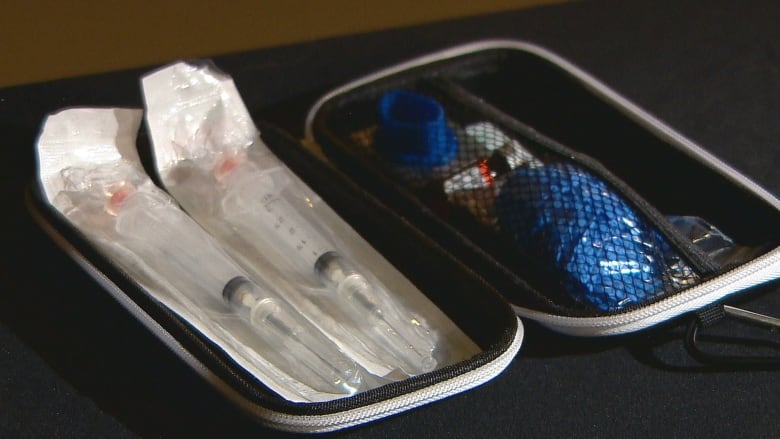Hamilton public health wants budget boost to expand anti-overdose program

Expanding access to life-savingopioidoverdose kits is a top priority for Public Health Services as a request for increased fundinggoes to city's budget committee on Friday.
The proposedbudget boost would increase service hours for thetravellingneedle syringe exchange vanservice during the week, as well asadding Sunday hours for the first time.
The van has proven to be the most effective way of getting lifesaving naloxone kits toaddicts at high risk of overdose around the city, saysareport going to the committee on Friday.
The report says Hamiltonhas handed out an estimated582 naloxone kits between May 2014 and July 2016.Officials believe at least 148 lives have been saved as a direct result.
Supplies are provided at no cost to Public Health Services,but no additional staff and operational funding havebeen provided to support the program since its introduction, even when the program expanded to provide nasal naloxone sprays to inmates released from detention centres last year.
The recommended changes to thenaloxoneprogram would cost $260,956. This would cover hiring more nurses and outreach workers, as well asfuel costs for thevan and extraoperation hours throughout the week.
It's a significant increase over the existing budget for the city's Take HomeNaloxoneprogram of$157,243, under which the van currently operates for 4 hours a day from Monday to Saturday, and city taxpayers will cover the boost if approved.
-
Hamilton Wentworth Detention Centre giving naloxone to releasedinmates
-
Hamilton LHIN has most opioid overdose deaths in province over 5 years
Lifesaving intervention
Each kit, containing aninjectibledose ofnaloxoneto counteractanopioidoverdose, is provided after mandatory one-time trainingand costs about $48,paid for by a provincial program.
Health Canada de-listed the lifesaving antidote last year. As of June 2016, a naloxone kit does not require a prescription to be sold in Ontario pharmacies, and is free-of-cost to eligible recipients.
Wheninjected into a person who is overdosing on prescriptionopioids, including morphine, heroin, or fentanyl, thenaloxonecan reverse the effectsfor about 10 minutes -- just long enough to get the victimto an emergency room.
Overdoseis currently the third-leading cause of accidental death in Ontario, with one death by overdose every 13 hours.
The numbers are even more stark inHamilton, where there have been moreopioid-relateddeaths in the HamiltonLHIN(which includes Niagara,HaldimandandBrant)over a five-year period than anywhere else in the province, according to a recent study from the Institute for Clinical Evaluative Sciences.
A recent study showed theopioidepidemicclaimed444livesfrom 2009 to 2013.In 2013 alone,there were 96 deaths, which isthe highestin the province and well above the Ontario average.
Mayor Fred Eisenberger, who hosted an opioid summit recently, recognized that this was a local problem.
"This level of drug addiction isn't just for the down and out it's all over the community," Mayor Fred Eisenberger said. "There is a significant issue out there and obviously, we don't want anyone to die."












_(720p).jpg)


 OFFICIAL HD MUSIC VIDEO.jpg)
.jpg)



























































































